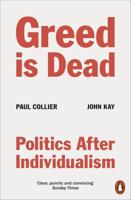Publisher's Synopsis
Excerpt from The Anti-Slavery Reporter, Vol. 4: January 1, 1831
Mr. Gladstone writes his pamphlet in Liverpool, at the distance of 4000 miles from his Slaves, not one of whom he has probably ever seen. Lie is far removed from the sight of their sufferings, whatever those sufienngs may be, and he is evidently wholly without power to contiol the conduct of his distant agents. Now ifhe had come forward to give us an authentic detail from the Registry of Deme rara, and from his own plantation books, of the changes which have taken placp among his Slaves from the time he became possessed of them to the present hour of their increase and decrease, and of their daily tasks and allowances, and hours ot'day and night labour, and punishments, Kc. &c. - he would have done more to throw light on the subject than by twenty such pamphlets as this. This pam phlet, we confess, has sen ed to excite our curiosity on these ponits, for it has led us to look back to the memorable period of the Missionary Smith. That truly excellent Minister of the Gospel, writing, on the 3oth of August, 1317, in his journal given in evidence on his trial, of Mr. Gladstone's estate Success, says, The Negroes of Success have complained to me lately of exci-ssiie labour and very severe treatment. I told one of the overseers, they would work their people to death. Another Missionary, in a letter dated 24th May, 1824, and which was given to the public in the same year, in the preface to the debate on the trial of Smith in the House of Commons, says of this same estate, with which he him self also, it seems, was personally acquainted, in allusion to the passage of Mr. Smith's journal just quoted; lt (success) is next above the chapel, and could be seen from Mr. Smith's house. Ever since it has been put in sugar, the No groes have complained of hard and late work. It was formerly in coffee.
About the Publisher
Forgotten Books publishes hundreds of thousands of rare and classic books. Find more at www.forgottenbooks.com
This book is a reproduction of an important historical work. Forgotten Books uses state-of-the-art technology to digitally reconstruct the work, preserving the original format whilst repairing imperfections present in the aged copy. In rare cases, an imperfection in the original, such as a blemish or missing page, may be replicated in our edition. We do, however, repair the vast majority of imperfections successfully; any imperfections that remain are intentionally left to preserve the state of such historical works.









